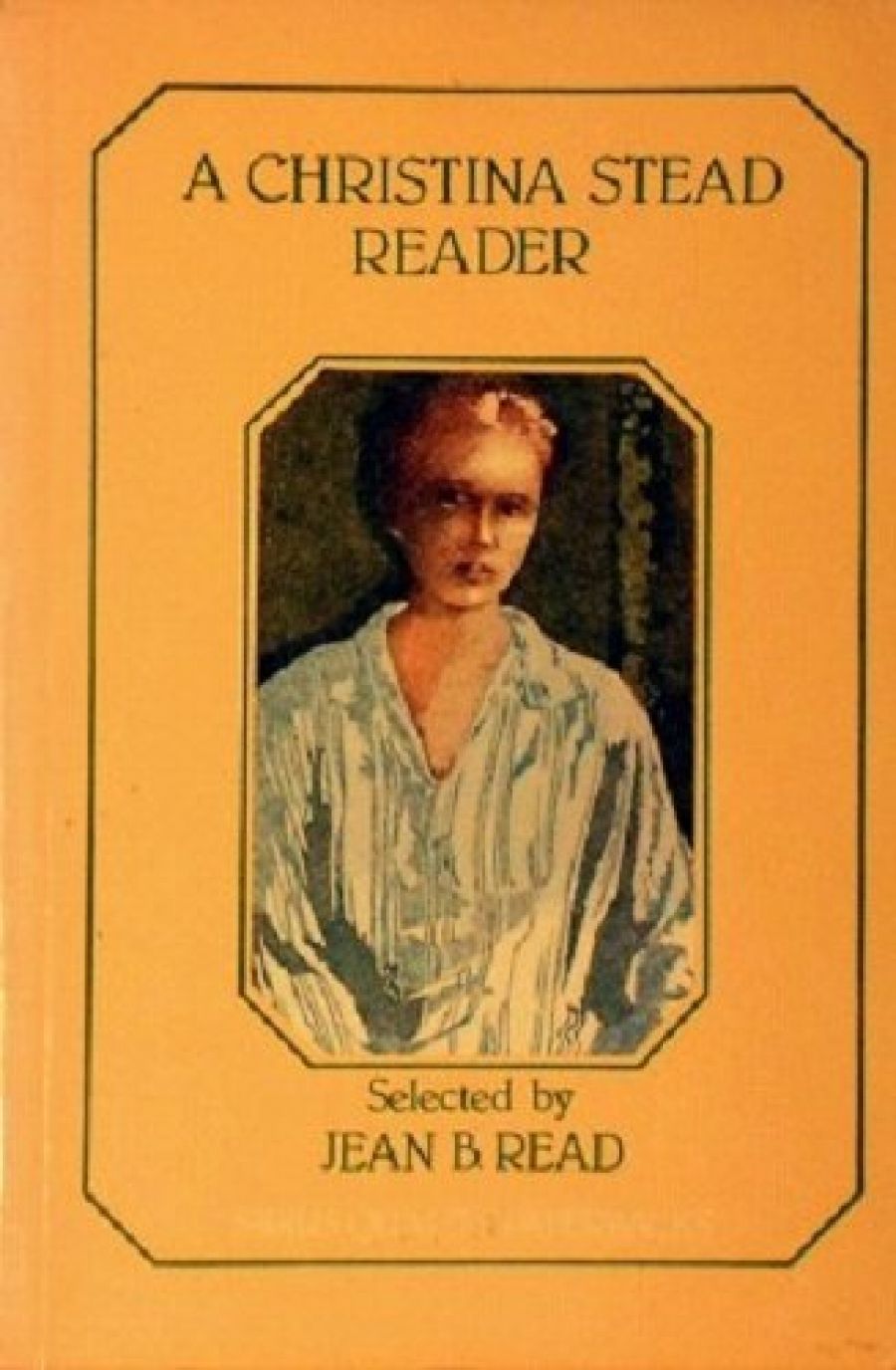
- Free Article: No
- Contents Category: Fiction
- Review Article: Yes
- Online Only: No
- Custom Highlight Text:
Christina Stead can take comfort, if such were to give comfort and if comfort were what she needed, that the publication of a reader of extracts from her work must signify that she is established not only on the reading lists of our universities – a dubious honour she has had for some time – but also, I presume, in our high schools. I cannot imagine who else this sort of book can possibly be aimed at. Perhaps at people who want to appear to have read Christina Stead but do not relish the work of reading her admittedly lengthy novels. In which case they deserve all that they miss. Is the next step towards the heights of literary honour to be, like Dickens, condensed? Our school children, at any rate, deserve better. Christina Stead certainly does.
- Book 1 Title: A Christina Stead Reader
- Book 1 Biblio: Angus and Robertson, $12.95 pb, 369 pp
The Christina Stead Reader is a smorgasbord of extracts from all but two of her novels: ten pages from The Salzburg Tales, thirty from A House for all Nations, fifty from The People with the Dogs, and so on. To give Jean B. Read, who made the selection, her due, she has made a good selection if such a thankless task had to be done. To give Angus and Robertson their due, it is a nice production. But why is Angus and Robertson, with their long history of Australian fiction publishing, not ensuring that a writer of Stead’s calibre is kept fully in print? In her extremely short introduction, Jean Read points out that not all Christina Stead's novels are in print: ‘half a loaf, or even a slice of it,’ she says, ‘is better than none.’ Surely this is the wrong analogy. Novels are not loaves, or even cakes and do not, like them, stand cutting up.
Take For Love Alone, a magnificent novel and one that should indeed be taught in our schools, addressing as it does the crises of adolescence and early maturity, the terrible conflicting desires for love and independence, adventure and security, acceptance or at least understanding and the right to one's own integrity and eccentricities, the refusal and the necessity to compromise. Included in the Reader is the final triumphant passage of the novel, in which Teresa makes her famous statement, ‘I am thinking I am free’, the last line of the novel. It is only by reading the whole that one can begin to understand the ambiguities and ironies of a novel entitled For Love Alone, one of the great fictional explorations of an irrational, obsessive love which ends with a young woman making that statement to a husband she finds oppressive but dearly loves. I am thinking I am free. How many of our school children, or any of us, can begin to comprehend what such a statement might mean. The extracts from For Love Alone that appear in the Reader certainly merit close analysis, but their significance lies not in being sliced from the text, but in their relationship to the whole.
In short, I found The Christina Stead Reader an infuriating book, which says a great deal less about Christina Stead than about the state of our publishing and education industries.


Comments powered by CComment